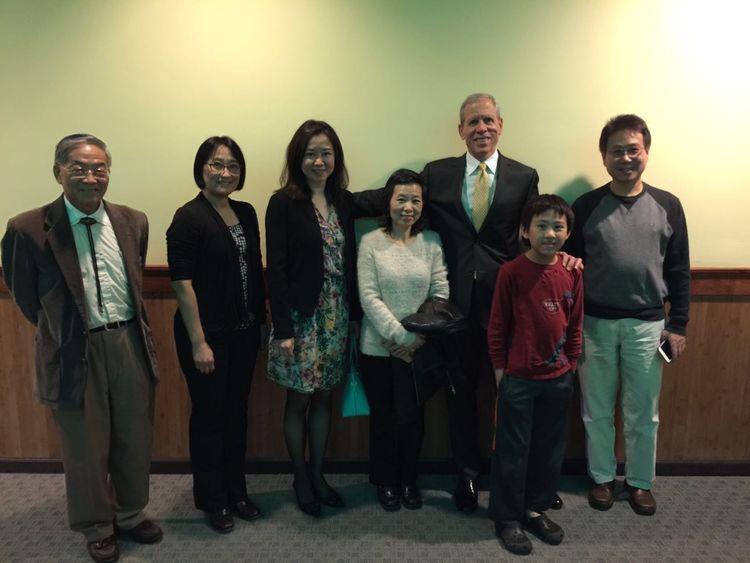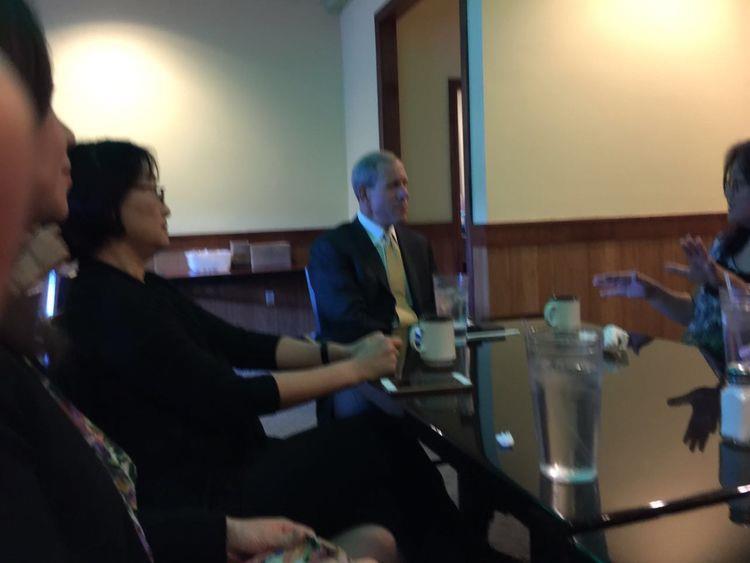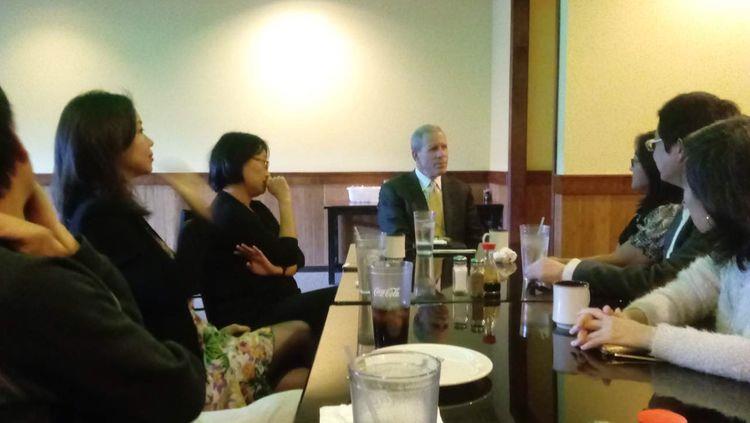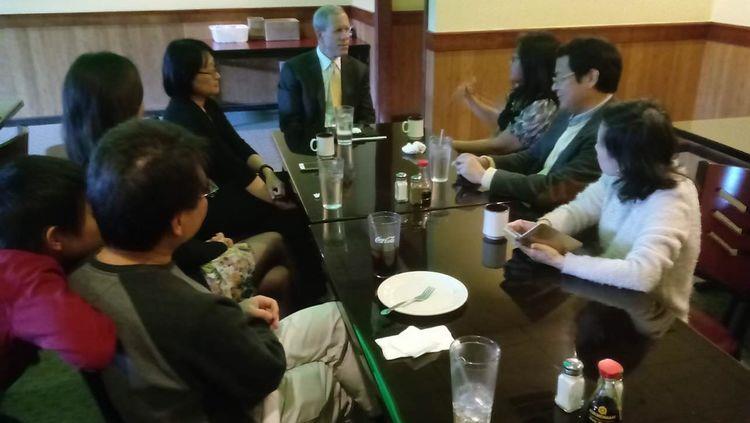晚间,在新开张不久的TJ Buffet,匹兹堡部分华人与正准备竞选宾夕法尼亚州长位子的"保罗·曼果"(Paul Mango)先生会见交谈。

交谈涉及广泛的内容,涵盖了我们华人关心的移民、健保、教育等议题…。保罗非常健谈,对于我们的问题一一作答。
Paul Mango在快结束时说:"亚裔美国人对美国文化,科学,经济上作出很大的贡献,赢得了在美国的地位,但是千万不要因为内敛而不进一步施加更大的正面影响。亚裔美国人应该可以在政治上也有更大的作为。"

我不多评论今晚谈话内容,毕竟保罗在竞选过程中,离实现他的抱负还需要努力。
但就是这样以一群关心政治的华人,与一位州政府首长竞选者会面,华人方面反映自己群体的需求;竞选者阐述自己的政见,相互沟通这件事本身,才更重要!

几年前匹兹堡华人开始形成大团结的局面成功展示了文化艺术的才华和发出声音的力量!但这只是千里之行始于足下的第一步。
华人参政议政,是提升美国华人族群地位的第二步。只有扎扎实实地走好第二步,才可能进入到最重要的第三步---一大批华人进入各级决策层,成为制定政策,监督审议执行的力量!那才是美国华人和在所有海外的华人族群取得社会公平公正公义的终极目标。
因此今晚的会见,其重要意义不言而喻!
诚恳希望越来越多的华人认识到这一点,积极参与这类活动,不但自己参与,而且带领下一代参与。让华人群体参政议政成为华人群体的新传统!

海老KK
2017/5/8
Paul Mango is a Director in McKinsey's Pittsburgh office where he leads the North American Payor/Provider practice. He joined the Firm initially in 1988, left in 1991 to start and operate a clinical laboratory diagnostics business, and then rejoined the Firm in 1996 to further develop its presence in the health care industry.
Paul has led recent health care engagements spanning a broad spectrum of strategy, operations, and organization topics, with an increasing emphasis on such areas new approaches to medical management, development of distinctive service strategies, physician channel management effectiveness, and applying lean manufacturing principles to patient care delivery processes. He has also worked recently on enhancing hospitals' ability to effectively introduce new drugs and medical devices. He works extensively with some of the country's largest payors and providers and has also spent a significant amount of time serving health care clients in Europe, Asia, and the Middle East.
Since 1997, Paul has co-authored five articles published in the McKinsey Quarterly. The first, titled "GPOs Are No Panacea For U.S. Hospitals" focused on how integrated health systems could better exploit a growing number of supply chain reconfiguration opportunities. The second, titled "M&A Malpractice" examined the failure of hospitals to create the value anticipated from mergers. The third, titled "Hospital Heal Thyself" suggested practical alternatives to physician practice ownership as a means of influencing the channel. The fourth, titled "Hospitals Get Serious About Operations" examined the trend in operating efficiency in U.S. hospitals in the new millennium. The fifth, entitled "The Case for Boutique Health Care" offers a brief overview of the increasing trend of nonprofit hospitals offering premium services and accommodations to patients willing and able to pay for them.
During his five years away from McKinsey, Paul served as the Executive Vice President and Chief Operating Officer at the Institute for Transfusion Medicine, a private biotech services firm located in Pittsburgh.
Prior to joining McKinsey in 1988, Paul served five years as a field artillery officer in the US Army. He left the service in 1986 as a Captain. Paul's formal education include a General Engineering degree from West Point where he graduated as a distinguished cadet in 1981, and a Masters in Business Administration from Harvard University where he graduated as a Baker Scholar in 1988.


